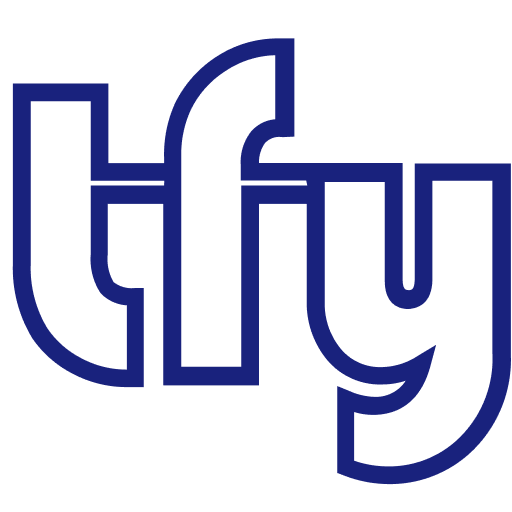Choosing an employer of record (EOR) for your business is a difficult decision. You’re essentially trusting a different company to employ your remote employees on your behalf. You have to trust that they will do a great job keeping your new hires happy.
That’s why we made this in-depth guide to cover all the factors you should consider when choosing an EOR. Let’s jump in!
Compare pricing models
When looking for an employer of record for your business, it’s important to consider several factors, including pricing. Here are some steps to help you choose the right EOR based on pricing:
Identify your business needs:
Before you start looking for an employer of record, it’s important to have a clear understanding of your business needs. This will help you determine the type of employer of record you need and the services they should provide.
Research different employer of record options:
Once you have a clear understanding of your business needs, you can start researching different employer of record options. Look for companies that offer the services you need at a price that fits your budget.
Compare pricing plans:
Once you have a shortlist of potential EOR options, compare their pricing to determine which one offers the best value for money. Take into account not just the upfront cost, but also any additional fees or charges that may be applicable.
Research additional fees
An employer of record may charge additional fees for a variety of services and activities, such as setting up and maintaining employee payroll, providing employee benefits, managing employee tax and compliance, and handling employee onboarding and offboarding. Other common fees that an employer of record may charge include:
Legal fees:
An employer of record may charge fees for legal services, such as drafting and reviewing employment contracts, providing legal advice, and representing the business in employment-related disputes.
Processing fees:
An employer of record may charge fees for processing payroll, tax, and other employee-related payments and paperwork.
Benefits administration fees:
An EOR may charge fees for administering employee benefits, such as health insurance, 401(k) plans, and other perks.
Compliance fees:
An employer of record may charge fees for ensuring that the business is compliant with employment laws and regulations, including providing employee training and support.
Employee onboarding and offboarding fees:
An employer of record may charge fees for onboarding new employees and offboarding departing employees, including handling the necessary paperwork and providing support.
Overall, it’s important to carefully review the fees and charges that an employer of record may apply and to factor these into your budget and decision-making process. This will help ensure that you choose an employer of record that offers the best value for money and meets the needs of your business.
Check for discounts
An employer of record may offer discounts for a variety of reasons, such as to reward loyal customers or to encourage businesses to use their services. Some common things that an EOR may offer discounts for include:
The volume of services provided:
An employer of record may offer a discount to businesses that use a large volume of their services. For example, a business that hires a large number of employees through the employer of record may be eligible for a discount on their fees.
Bundled services:
An employer of record may offer a discount to businesses that bundle multiple services together, such as payroll, benefits, and compliance. This could be in the form of a reduced overall fee for the bundled services, or a discount on individual services.
Referral program:
An employer of record may offer a discount to businesses that refer other businesses to their services. This could be in the form of a discount on the referring business’s fees or a discount on the referring business’s fees.
Special promotions:
An employer of record may offer discounts as part of special promotions or events. For example, they may offer a discount to businesses that sign up for their services during a certain time period, or to businesses that use a specific service or product. Or businesses that hire refugees. Or they might offer discounts for non-profit organizations.
It’s important to ask an EOR about any discounts or promotions they may offer and to carefully consider these when deciding which employer of record to use. This will help ensure that you get the best value for money and the services that your business needs.
Ask about exchange fees
Exchange fees, also known as currency exchange fees or foreign exchange fees, can impact choosing an employer of record provider if your business operates in multiple countries or in a country with a different currency from the employer of record provider.
Exchange fees are charges that are applied when converting one currency to another. These fees can vary depending on the currency exchange rate and the financial institution or provider being used. In some cases, exchange fees can be significant, especially for large or frequent transactions.
If your business operates in multiple countries or in a country with a different currency from the employer of record provider, exchange fees can impact the overall cost of their services. For example, if you pay the employer of record provider in one currency and they pay your employees in another currency, exchange fees may be applied to the transactions, which can add to the overall cost.
To avoid or minimize the impact of exchange fees, you can:
- Choose an EOR provider that operates in the same country or has a presence in the country where your business operates. This can help avoid or minimize exchange fees, as the provider will be able to pay your employees in the local currency.
- Use a provider that offers competitive exchange rates and low or no exchange fees. Some providers may offer special rates or waivers on exchange fees for certain transactions or customers.
- Use a provider that offers the option to pay in multiple currencies. This can help avoid or minimize exchange fees, as you can pay the provider in the currency of your choice and they can pay your employees in the local currency.
Exchange fees can impact choosing an EOR if your business operates in multiple countries or in a country with a different currency from the provider. To avoid or minimize the impact of exchange fees, it’s important to carefully consider the provider’s location, exchange rates, and currency options when making a decision.
Ensure country availability
It’s important to check what countries an employer of record operates in when choosing an employer of record because the provider’s location and presence in different countries can impact the services they can provide and the overall cost of their services.
Compliance with local laws and regulations:
Employment laws and regulations can vary by country, and an employer of record must be compliant with the laws and regulations of the country where they operate and where your employees work. Choosing a provider that operates in the same country or has a presence in the country where your employees work can help ensure compliance with local laws and regulations.
Availability of services:
The services offered by an employer of record can vary by country. For example, some providers may only offer payroll services in certain countries, while others may offer additional services such as benefits and compliance support. Choosing a provider that operates in the country where your employees work can help ensure that you have access to the services you need.
Currency and exchange fees:
An employer of record may pay your employees in the local currency of the country where they work. If your business operates in a country with a different currency, exchange fees may be applied to the transactions, which can add to the overall cost of the provider’s services. Choosing a provider that operates in the same country or has the option to pay in multiple currencies can help avoid or minimize exchange fees.
Do they own all their entities?
It’s important to know which countries an employer of record has legal entities in and which countries it uses a third-party entity for because this can impact the services they can provide and the level of support and assistance you can expect from them.
Compliance with local laws and regulations:
Employment laws and regulations can vary by country, and an EOR must be compliant with the laws and regulations of the country where they operate and where your employees work. An employer of record that has its own legal entities in the country where your employees work can provide a higher level of compliance and support, as they are directly responsible for meeting local legal requirements.
Access to services:
An employer of record that has its own legal entities in the country where your employees work can provide a wider range of services, as they are able to directly offer and manage services such as payroll, benefits, and compliance. On the other hand, an employer of record that uses third-party entities in the country may be limited to providing only certain services, as they may not have direct control over the third-party entities.
Support and assistance:
An employer of record that has its own legal entities in the country where your employees work can provide a higher level of support and assistance, as they have direct access to local resources and expertise. On the other hand, an EOR that uses third-party entities in the country may be limited in their ability to provide support and assistance, as they may not have direct control over the third-party entities.
Avoid or minimize exchange fees:
An employer of record that has its own legal entities in the country where your employees work can help avoid or minimize exchange fees, as they can pay your employees in the local currency. On the other hand, an employer of record that uses third-party entities in the country may be subject to exchange fees, as they may not have direct control over the third-party entities and the currencies they use. Choosing a provider that has its own legal entities in the country where your employees work can help avoid or minimize exchange fees.
Make sure they have support and expertise for hiring contractors
It’s important to choose an employer of record that supports contractors and knows how to avoid misclassification issues in the countries you’re hiring from because misclassification of workers as contractors rather than employees can have significant legal and financial consequences for your business.
Compliance with employment laws:
Misclassification of workers as contractors rather than employees can result in your business being non-compliant with employment laws and regulations. This can lead to legal penalties and fines, as well as reputational damage. Choosing an EOR that knows how to properly classify workers and comply with local employment laws can help protect your business from these risks.
Employee benefits and protections:
Employees are entitled to certain benefits and protections under employment laws, such as minimum wage, overtime pay, and workers’ compensation. Contractors, on the other hand, are not entitled to these benefits and protections. Misclassifying workers as contractors can result in your business not providing them with these benefits and protections, which can lead to legal and financial liabilities.
Cost savings:
Properly classifying workers as employees rather than contractors can result in cost savings for your business. This is because employers are typically required to pay employment taxes, such as Social Security and Medicare taxes, on behalf of their employees. Contractors, on the other hand, are responsible for paying their own employment taxes. Misclassifying workers as contractors can result in your business being responsible for paying their employment taxes, which can add to your overall costs. Choosing an employer of record that knows how to properly classify workers and avoid misclassification issues can help reduce your overall costs.
See if they offer localized benefits packages
It’s important to choose an EOR that offers localized benefits because offering appropriate benefits to employees can help attract and retain top talent, improve employee morale and satisfaction, and comply with local employment laws and regulations.
Attract and retain top talent:
Offering a competitive benefits package can help your business attract and retain top talent, as employees are often attracted to companies that offer a range of benefits and perks. An employer of record that offers localized benefits can help ensure that your business is able to offer a benefits package that is tailored to the local market and meets the needs of your employees.
Improve employee morale and satisfaction:
Offering appropriate benefits to employees can improve their morale and satisfaction, as they will feel valued and supported by your business. An employer of record that offers localized benefits can help ensure that your employees are able to access the benefits and support that are most relevant and useful to them.
Comply with local employment laws and regulations:
Employment laws and regulations can vary by country, and employers are required to provide certain benefits to employees under local laws. An employer of record that offers localized benefits can help ensure that your business is compliant with local employment laws and regulations and that your employees are provided with the benefits they are entitled to under local laws.
Look into IP protection
It’s important to choose an EOR that offers intellectual property protection because protecting your intellectual property can help ensure that your business is able to fully benefit from its creations and innovations, and can prevent others from infringing on your rights.
Preserve your competitive advantage:
Protecting your intellectual property can help preserve your competitive advantage, as it can prevent others from copying or using your creations and innovations without your permission. An employer of record that offers intellectual property protection can help ensure that your business’s competitive advantage is preserved and that you are able to maintain your market position.
Comply with local and international laws:
Intellectual property laws and regulations can vary by country and by international treaty. An employer of record that offers intellectual property protection can help ensure that your business is compliant with the relevant laws and regulations and that your intellectual property is properly protected under local and international law.
Double-check data protection policies
It’s important to choose an employer of record that offers data protection, such as GDPR compliance and SOC-2 certifications because protecting the personal and sensitive data of your employees and customers is essential for maintaining trust and complying with legal requirements.
Protect the personal and sensitive data of your employees and customers:
Personal and sensitive data, such as names, addresses, and financial information, must be protected to maintain the trust of your employees and customers and to prevent identity theft and other forms of fraud. An EOR that offers data protection, such as GDPR compliance and is SOC-2 certified, can help ensure that your business is able to properly protect the personal and sensitive data of your employees and customers.
Comply with legal requirements:
Data protection laws and regulations, such as the General Data Protection Regulation (GDPR) in the European Union, require businesses to properly protect the personal and sensitive data of their employees and customers. An employer of record that offers data protection, such as GDPR compliance, and has an SOC-2 certification, can help ensure that your business is compliant with these legal requirements and that you are able to avoid legal penalties and fines.
Maintain trust and reputation:
Protecting the personal and sensitive data of your employees and customers is essential for maintaining their trust and confidence in your business. An employer of record that offers data protection can help ensure that your business is able to maintain the trust and reputation of your employees and customers and avoid reputational damage.
Choose an EOR that integrates with your tech stack
It’s important to choose an employer of record that offers integrations with popular HR tools and platforms because this can help streamline and automate HR processes, improve data accuracy and security, and provide a better user experience for your employees.
Streamline and automate HR processes:
Integrating HR tools and platforms with your employer of record can help streamline and automate HR processes, such as payroll, benefits, and compliance. This can save time and effort for your HR team and can help ensure that HR processes are completed accurately and efficiently.
Improve data accuracy and security:
Integrating HR tools and platforms with your EOR can help improve the accuracy and security of HR data. For example, integrating a payroll system with your employer of record can help ensure that employee pay and tax information is accurately and securely transferred between the two systems.
Provide a better user experience for your employees:
Integrating HR tools and platforms with your employer of record can provide a better user experience for your employees. For example, integrating a benefits platform with your employer of record can allow employees to easily enroll in and manage their benefits online, without having to manually
Make sure they help with visas and relocation
It’s important to choose an employer of record that can provide visa support and relocation services because obtaining visas and relocating to a new country can be complex and time-consuming and can require specialized knowledge and expertise.
Simplify the visa process:
An employer of record that can provide visa support and assistance can help simplify the process and ensure that your employees are able to obtain the necessary visas in a timely and efficient manner.
Provide expert advice and assistance:
The requirements and processes for obtaining visas can vary by country and can be subject to change. An EOR that can provide visa support and assistance can provide expert advice and assistance and can help ensure that your employees are able to obtain the necessary visas in compliance with local laws and regulations.
Support the relocation process:
Relocating to a new country can be challenging, and can require a range of services, such as finding a place to live, arranging for transportation, and setting up utilities. An employer of record that can provide relocation services can help support your employees during the relocation process.
Ensure your EOR values speedy onboarding and service resolution
It’s important to choose an employer of record that values providing fast resolutions and timely employee onboarding because this can help ensure that your employees are able to start working quickly and smoothly and that any issues or problems are addressed and resolved promptly.
One of the top complaints clients and employees have about using an EOR is time delays for solving issues. No one wants to hear “we’re working on it” with no update for days.
Ensure that your employees are able to start working quickly:
Timely employee onboarding is essential for ensuring that your employees are able to start working as quickly as possible. An EOR that values providing fast resolutions and timely employee onboarding can help ensure that your employees are able to start working without delays or disruptions.
Ask your potential candidate how long it takes on average to onboard new employees, how long it takes to resolve issues, and how long any visa-related processes might take.
Improve employee morale and satisfaction:
Fast employee onboarding and quick resolution of issues and problems can improve employee morale and satisfaction, as they will feel supported and valued by your business. An employer of record that works quickly can help improve your employees’ experience and satisfaction with your business.
If it takes your employer of record long periods of time to solve issues and it results in your employees not getting paid on time or experiencing other issues, it can result in your new hires quitting. It can also create a disconnect between the EOR and your company. You both need to be on the same page to keep employees happy.
EORs need to have excellent Support
It’s important to choose an employer of record that offers excellent support to its partners because you will need to be able to get priority assistance and support from time to time.
You should have a go-to representative you can contact at any time. If you’re talking to a different person every time you need support it can be extremely frustrating.
Get answers to your questions and concerns:
An employer of record that offers excellent support can help ensure that you are able to get answers to your questions and concerns in a timely and helpful manner.
Resolve issues and problems quickly:
As a client of an EOR, you may encounter issues or problems that need to be resolved. An employer of record that offers excellent support can help ensure that any issues or problems you encounter are resolved quickly and efficiently.
Enhance your overall experience as a client:
An employer of record that offers excellent support can enhance your overall experience as a client. This can help build trust and confidence in your relationship with the provider and can improve your satisfaction with the services and support they provide.
To determine the quality of support you might receive as a potential client of an employer of record, you can consider the following factors:
Reputation and reviews:
One way to determine the quality of support you might receive as a potential client is to research the reputation and reviews of the employer of record. Look for reviews from other clients and check their ratings on websites like Trustpilot and Google. This can provide insight into the level of support and assistance that other clients have received from the provider.
Multiple support channels and availability:
Another way to determine the quality of support you might receive is to evaluate the support channels and availability offered by the employer of record. Look for providers that offer multiple support channels, such as phone, email, and live chat, and have support available during regular business hours and after hours. This can help ensure that you are able to get the support you need when you need it.
Assess the expertise of the support team
You can also determine the quality of support you might receive by evaluating the support team and expertise of the employer of record. Look for providers that have a dedicated support team with expertise in the services they provide, such as payroll, benefits, and compliance. This can help ensure that you are able to get accurate and helpful support and assistance from knowledgeable and experienced professionals.
Your employees need to like your EOR too
It’s important to choose an EOR that has a high level of employee satisfaction because this can help ensure that your employees are happy and productive, which can ultimately benefit your business.
Improve employee morale and productivity:
Employees who are happy and satisfied with their employer are more likely to be motivated and productive. An employer of record with a high level of employee satisfaction can help ensure that your employees are happy and productive, which can ultimately benefit your business.
Reduce turnover and absenteeism:
High levels of employee satisfaction can lead to lower turnover and absenteeism. When employees are happy and satisfied with their employer, they are less likely to quit and more likely to show up for work regularly. An employer of record with a high level of employee satisfaction can help reduce turnover and absenteeism, which can save your business time and money.
Enhance your reputation as an employer:
A high level of employee satisfaction can enhance your reputation as an employer. Employees who are happy and satisfied with their employer are more likely to recommend the company to others and to speak positively about their experiences. An employer of record with a high level of employee satisfaction can help enhance your reputation as an employer, which can improve your ability to attract and retain top talent.
To determine if a potential EOR will be able to keep your employees happy, you can consider the following factors:
Supports a range of employee benefits and perks:
One way to determine if a potential employer of record will be able to keep your employees happy is to evaluate the employee benefits and perks they offer. Look for providers that support a range of benefits and perks, such as health insurance, and 401(k) plans, as these can help improve employee morale and satisfaction.
Offers direct employee support and assistance:
Another way to determine if a potential employer of record will be able to keep your employees happy is to evaluate the support and assistance they offer directly to your employees. Look for providers that offer direct support for employees on issues such as visas, relocation, and tax compliance, as this can help reduce stress and improve the overall employee experience.
Employee feedback and satisfaction:
You can also determine if a potential EOR will be able to keep your employees happy by looking for providers that regularly collect and act on employee feedback and satisfaction. Look for providers that have a track record of listening to and addressing employee feedback, and that have high levels of employee satisfaction. This can help ensure that your employees are happy and satisfied with the employer of record.
Talk to their customer service reps
Before making a decision, it’s a good idea to talk to the customer service team of the employer of record you’re considering. This will give you an idea of the level of support and assistance you can expect from them.
Read their reviews and testimonials
Finally, read reviews and testimonials from other businesses that have used the employer of record you’re considering. This will give you an idea of their level of service and how satisfied their customers are with their services.
Check internal reviews from employees of the EOR
Another great option to get an idea of the kind of company you’ll be hiring is to look at the reviews their own employees. Not the ones from your employees who they technically employ for you. The actual people who work strictly for the EOR.
Glassdoor is a great starting point. See what people who worked for the EOR you’re considering have to say. You’ll get some great insights.
That’s a lot to consider!
Yes, this is a fairly long list of things to consider. But partnering with an EOR is a big deal. It’s not like hiring a payroll company. They will literally and legally be employing your remote employees for you. So they absolutely have to be a great fit for your business.
Choosing the right employer of record involves a combination of researching different options, comparing pricing, and considering the quality of service. By checking everything in this guide you can find an EOR that offers the services you need at a price that fits your budget.
Recommended EOR Providers
Remote is a robust and modern platform for remote-first teams. EOR, contractor management, payroll, benefits, and more.
Oyster is an intuitive platform that allows you to hire, pay, and care for a global team in more than 180 countries. EOR, contractor management, payroll, benefits, and more.
TFY has features for applicant tracking, freelance management, payroll, and more in a single platform. The platform supports diversity hiring and Corporate Social Responsibility (CSR) initiatives.
Lano is both a B2B & B2C platform. Businesses can use it to process global payroll, hire remote talent and manage contractors, while employees and freelancers can benefit from its payslip service, invoicing app, multi-currency wallet, and more.





